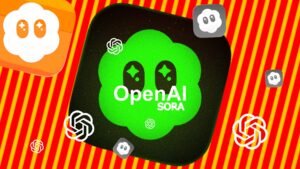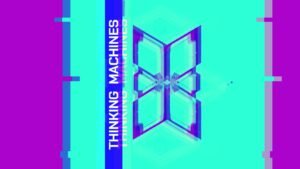In an ever-evolving world, the landscape of professions is significantly impacted by the exponential growth of artificial intelligence (AI). It’s clear that the roles we define as professions today are at risk of becoming obsolete in the face of advancing AI technology.
The core impact is the increasing efficiency of AI at tasks that were once deemed exclusive to human intelligence. AI can accumulate vast amounts of information, analyze it swiftly, and project it with precision—qualities that make it an invaluable tool in today’s fast-paced world. As a result, the value of intellectual work is being redefined as machines outperform humans with ease.
To comprehend the implications of AI, we can look back at the history of technology. The introduction of calculators, for example, altered the way mathematics was perceived. The ability of a simple device to perform complex calculations led individuals to question the need for years of mathematical education. Fast forward to the present, and the same skepticism is being directed towards traditional professions in light of AI advancements.
The fundamental concern for many professionals is the fear of job displacement. AI systems, with their data-driven decision-making and automation capabilities, have the potential to perform tasks with greater efficiency and accuracy than humans. This raises questions about the future of many jobs that have been regarded as sacred and essential for centuries.
AI has the power to automate and enhance creative tasks, even in fields like architecture and design. The ability of AI to design entire houses, accounting for aesthetics, culture, preferences, and budgets, is a testament to its versatility. Furthermore, the possibility of machines printing and building these houses in the near future raises critical questions about the roles of architects and designers.
As AI continues to evolve, the central message becomes clear: to remain relevant, individuals must equip themselves with skills that surpass mere intellect. Human intelligence is multifaceted, with intellect being just one dimension of a much broader spectrum. Our current education system places disproportionate emphasis on intellectual development, a perspective that may no longer suffice in an era dominated by AI.
A simple analogy helps illustrate this concept—our bodies possess intelligence that extends beyond intellect. The process of digesting food transforms it into the intricate machinery of a human being, similar to a 3D printer creating a complex structure. This intelligence is not confined to the brain but encompasses the gut as well. The key is to consciously access this dimension of intelligence, opening the door to a more enriched and fulfilling life.
The rise of AI should not be perceived as a threat but as an opportunity. As AI takes over routine and repetitive tasks, it liberates humans to explore their full potential. In a world where AI can handle menial jobs efficiently, there’s room for individuals to embrace creativity, spirituality, and various dimensions of intelligence. Rather than being displaced by AI, humans can coexist and thrive in a more harmonious and rewarding future.
As AI continues its remarkable journey, the shift required is not just from artificial intelligence to conscious intelligence but also from a narrow focus on intellect to the exploration of the diverse dimensions of human intelligence. Embracing this shift, we can look forward to a future where AI is not a competitor but a collaborator.
The world is changing rapidly, and we must adapt accordingly. The key to relevance in the age of AI is not merely in our intellect but in our capacity to access the deeper dimensions of our intelligence. In doing so, we can look forward to a future where artificial intelligence complements our abilities, creating a truly wonderful world.












Welcome to our comments section!
We value your feedback and encourage you to share your thoughts in the comment section. Let’s keep the conversation meaningful, respectful, and inclusive.
For the best user experience, commenting is closed after an article has been posted for seven days. Please ensure your comments align with our Community Guidelines.